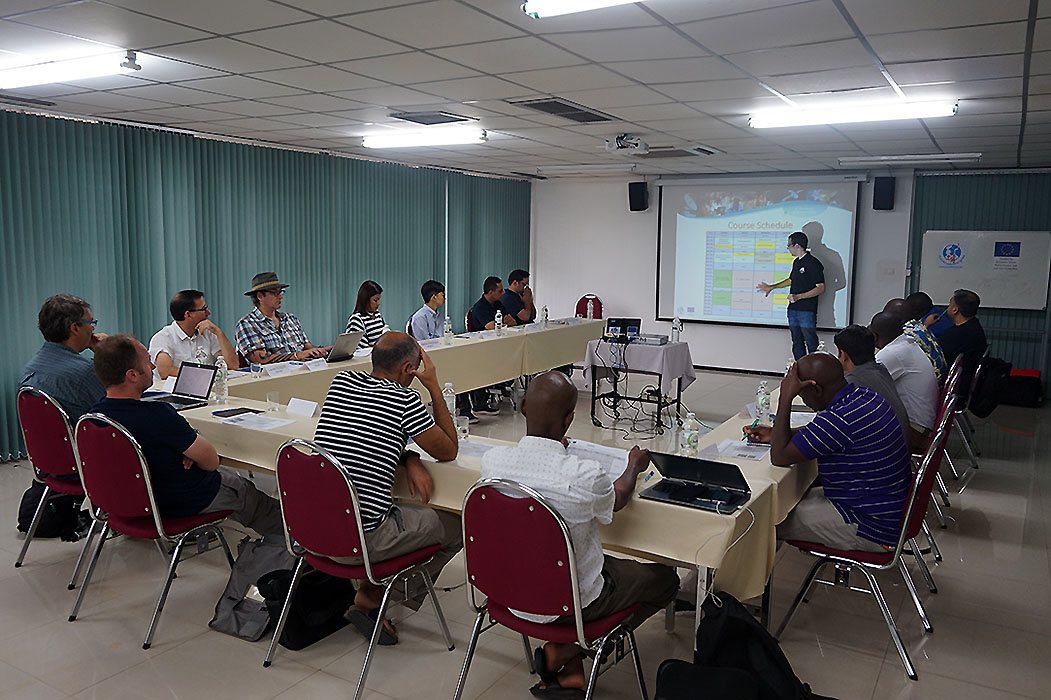ICT training for ECHO technical staff
Context: Capacity building
Start date: 12/09/2016
End date: 16/09/2016
Areas of intervention: Thailand
Activities: Capacity building
5 days of training
16 experts from the European Commission
8 ECHO regional offices present
Context
Beyond its interventions in emergencies, Télécoms Sans Frontières relies on its expertise in new technologies to provide practical training on emergency preparedness to NGOs and international humanitarian agencies.
In 2013, TSF trained the experts from the European Civil Protection and Humanitarian Aid Operations (ECHO) agency for the regions of East Africa and the Middle East. Having recognised the impact of TSF’s training programmes, ECHO wanted to open up sessions to a larger number of its key members.
At the request of ECHO, TSF delivered a five-day training session in September 2016 in Bangkok, on the Asian Institute of Technology (AIT) campus. A team of 16 experts from the Commission, representing 10 nationalities and 8 regional offices participated.
Capacity Building
TSF has gave both theoretical and practical courses on different aspects of ICT:
- presentation of telecommunications technologies in emergency situations;
- TCP / IP networks, routers, access points, wireless networks;
- satellite telecommunications technologies: BGAN, Satphones, VSAT;
- telecommunication assessment tools: mapping, GPS tracking, data collection;
- preparation for the emergency context: management of a fleet of satellite equipment, logistics and transport, energy management, optimisation of satellite links.
A simulation exercise was organised to enable participants to put into practice the acquired skills.
Since 2009, TSF has organised several training sessions of which the objective is to reinforce the skills of technical experts on the humanitarian field through the use of ICT. More than 800 representatives from several NGOs, UN agencies and local authorities have benefited from these programmes. Thanks to its training, TSF contributes to strengthening the skills of emergency actors, thus optimising the global response and supporting operations that aim to save lives.



















